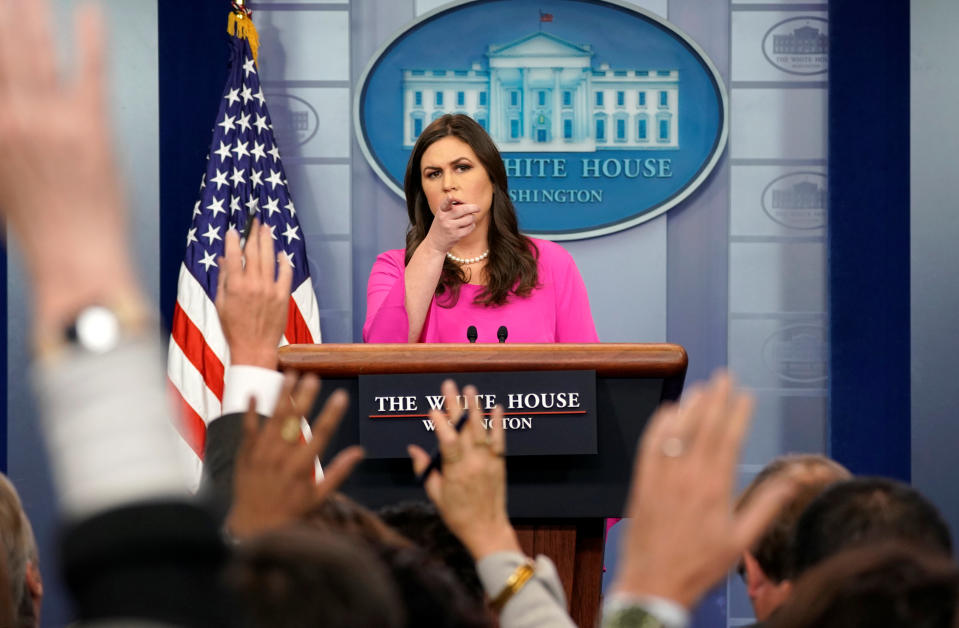White House punts on key Mueller questions
WASHINGTON — The White House on Monday worked to put as much distance as possible between President Trump and two former senior campaign aides under indictment and another adviser-turned-government-witness in special counsel Robert Mueller’s escalating investigation.
And Trump’s press secretary, Sarah Sanders, declined to rule out that the volatile commander in chief would fire Mueller, a respected former FBI director looking into Russia’s alleged meddling in the 2016 campaign.
“There’s no intention, or plan, to make any change with regards to special counsel,” Sanders told reporters at the daily briefing. That stopped well short of an ironclad commitment to let Mueller’s investigation run its course.
Sanders tried to shrug off the federal indictments of former Trump campaign chief Paul Manafort and his former business partner, Richard Gates, and dismissed former campaign foreign policy aide George Papadopoulos’s admission that he lied to FBI agents investigating Russia’s role in 2016.
Asked about Manafort and Gates, Sanders replied: “It doesn’t have anything to do with us.” The charges stem from activities “outside of the scope of the campaign,” she said repeatedly.
Asked whether Trump would consider pardoning the two men, Sanders indicated that it was premature to make that assessment. “I haven’t had any conversations with him about that. I think we should let the process play through before we start looking at those steps,” she said.

As for Papadopoulos, Sanders repeatedly dismissed him as a mere “volunteer” with no sway inside the Trump campaign. She insisted that his repeated communications with individuals connected to the Russian government to try to arrange contacts between the Kremlin and Trump Tower had not borne fruit.
“He reached out, and nothing happened beyond that, which I think shows, one, his level of importance in the campaign and two, shows what little role he had with coordinating officially for the campaign,” she said. “Any actions that he took would have been on his own.”
That response seemed at odds with one key section of Papadopoulos’s unsealed “Statement of Offense.” In that passage, he says that after weeks of discussions about setting up an “off-the-record” meeting with Russian officials, an unnamed “campaign supervisor” said, “I would encourage you” to “make the trip” to Moscow with another campaign foreign policy aide if “feasible.”
Asked about that passage, Sanders replied: “I’m not aware of that conversation, so I can’t speak to that.”
In another section of the unsealed Papadopoulos document, he admits that a Russia-connected individual told him in late April 2016 that the Russians had “dirt” on Democratic presidential candidate Hillary Clinton in the form of “thousands of emails.” That communication occurred months before it became public that emails from her campaign manager, John Podesta, had been hacked.
Asked when Trump became aware of the hack, Sanders replied: “I’m not sure of the specific date.”
Read more from Yahoo News:


